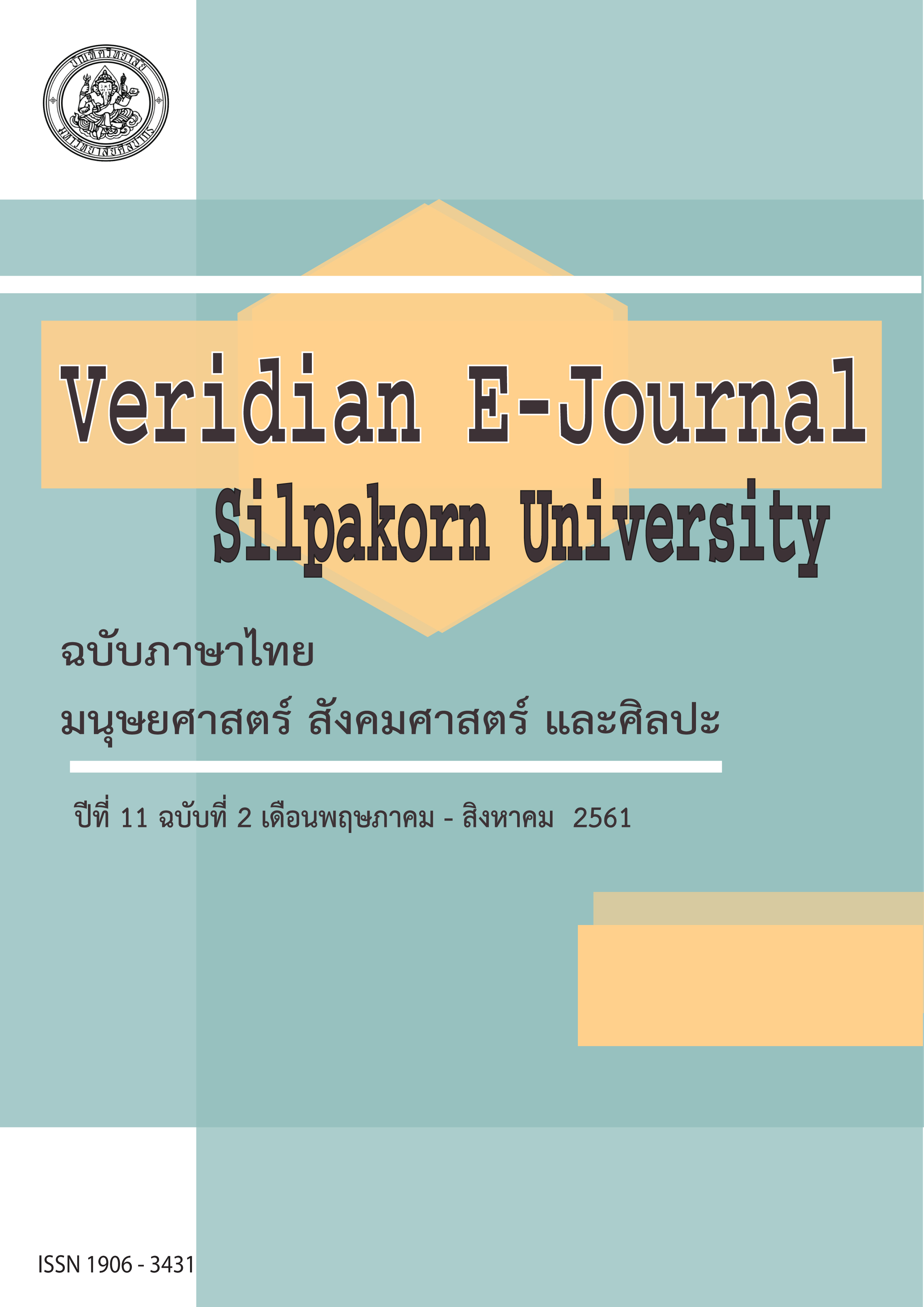ตัวเลขลิขิตชีวิตเราได้หรือ? : อุดมการณ์ชะตานิยมกับการร้อยเรียงตัวเลข (The numbers can control our destiny? : Fatalism in number arrangement)
Main Article Content
บทคัดย่อ
บทความวิจัยนี้เป็นการศึกษาเชิงคุณภาพด้วยวิธีวิเคราะห์เนื้อหาเพื่อศึกษากลวิธีทางภาษาศาสตร์กับการสื่ออุดมการณ์ชะตานิยมในวาทกรรมคำทำนายดวงชะตาจากการร้อยเรียงตัวเลขโทรศัพท์มือถือ โดยศึกษาจากวาทกรรมที่ปรากฏในสื่อสิ่งพิมพ์ สื่อออนไลน์ และสื่อโทรทัศน์ในช่วงปี พ.ศ. 2559-2560 ผลการศึกษาพบว่า ผู้สร้างวาทกรรมใช้กลวิธีทางภาษา 9 กลวิธี เป็นกลวิธีทางอรรถศาสตร์ 2 กลวิธี ได้แก่ การใช้คำที่มีความหมายแสดงการยืนยัน และการเลือกใช้คำปรากฏร่วมกัน และกลวิธีทางวัจนปฏิบัติศาสตร์ 7 กลวิธี ได้แก่ การใช้คำแสดงทัศนภาวะ การใช้มูลบท การใช้ประโยคเงื่อนไข การกล่าวอ้าง การใช้อุปลักษณ์ การใช้คำถามเชิงวาทศิลป์ และการใช้สหบท กลวิธีทางภาษาทั้งหมดได้ผลิตซ้ำและเผยแพร่อุดมการณ์ชะตานิยมและการยอมรับอำนาจของผู้ทำนายดวงชะตา โดยผู้ทำนายดวงชะตาซึ่งเป็นผู้สร้างวาทกรรมสื่อให้เห็นว่าการร้อยเรียงตัวเลขมีอำนาจในการกำหนดความเป็นไปในชีวิตของมนุษย์และผู้ที่สามารถเข้าถึงและแก้ไขชะตากรรมที่สืบเนื่องจากอำนาจดังกล่าวมีเพียงผู้ทำนายดวงชะตาเท่านั้น การยอมรับอุดมการณ์ชะตานิยมสะท้อนว่าผู้รับการทำนายปฏิเสธอำนาจการเลือกและตัดสินใจในการดำเนินชีวิตด้วยตนเองเพราะยินยอมให้สิ่งอื่นมีอำนาจกำหนดชีวิตของตน
This research paper is a qualitative study by content analysis. It aims to study linguistic strategies for communicate the ideology of fatalism in number arrangement prediction discourse. This study analyze printing, online, and television media in the period of 2016-2017. The results revealed that the discourse creators used 9 language strategies, 2 strategies are semantics: confirmation words, and relation words, 7 strategies are pragmatics: modality, presupposition, conditional sentence, reference, metaphor, rhetorical question, and intertextuality. All language strategies reproduced and broadcasted the ideology of fatalism and the power acceptance of fortune teller. The fortune teller showed that number arrangement can control the human destiny and only fortune teller can access and modify the fate of human from predictions. Besides, the acceptance of fatalism showed that the discourse receivers refused the power of managing and decision of their life, because they allowed others to control themselves.

